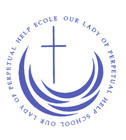What is Classical Education?

What is Classical Education?
École Our Lady of Perpetual Help School, through the Cogito Academy, is dipping its collective toes into Classical Education, but what does that mean?
Classical Education is a term that has meant different things in different times. Here are some features of one of the fastest growing educational revivals in North America.
- Literature: Classical Education introduces students to the best of literature, with a Great Books approach to English class which, while also including diverse voices, believes that students are enriched by encountering the classics.
- History: Classical Education embraces an understanding of the full sweep of history, including the ancient world of Greece and Rome, which are foundational to our modern democracy.
- Character Formation: Classical Education believes that human formation, with an eye toward excellence, is one the highest goals of schooling. Virtue education through the classical Greek and Christian virtues, is at the heart of this.
- The Trivium: Classical Education is based on, in part, the old medieval model of the Trivium (Grammer, Logic, Rhetoric) as the proper order for intellectual development. Understanding of these and application of these terms has changed, but is a sensible, fruitful way to teach young minds:
- Grammar: in our modern world, we can see this as the learning of foundations, of facts (math facts, science facts, spelling and grammar facts, etc), all the things necessary for excelling at later stages. In Cogito, this roughly fits into K-4.
- Logic: this can be loosely defined as thinking, process, and learning the art of argument. It is thinking and understanding, building off initial foundational learning, and in Cogito will be a large component of the Grades 5-8 experience.
- Rhetoric: this stage, explored in high school and beyond, is primarily about wisdom, creativity, as well as critical thought.
- Socratic Method: This method, first used by the Greek philosopher, Socrates, sees the teacher engaging students in conversation, leading them through questions to a deeper understanding of truth. In Cogito, fittingly, we will introduce this in the Logic stage of Grades 5-8.
- Languages: studying languages is proven to benefit brain development, deepen our understanding of our native languages, and expose us to the world.
- Arts: exposure to and participation in the arts of Music, Visual Art, and Drama are not simply good experiences. Participation in beauty is good for the soul.
- The Transcendentals: In our Cogito program, we will introduce our students to the True, the Good, and the Beautiful, knowing that these things are of and from God.
- Holistic Formation: This means spiritual formation, intellectual formation, but also physical formation through sport and activity. Participation through sport, for example, does not simply form the body. The discipline of sport also forms the soul.
Above all, Classical Education is about excellence. Students across North America are flourishing in classically based schools, which are springing up all over Canada and the United States. Are classical schools about going back to basics? Yes but, much more than that - they take us back to the sources of the Western world which we are so blessed to live in.
